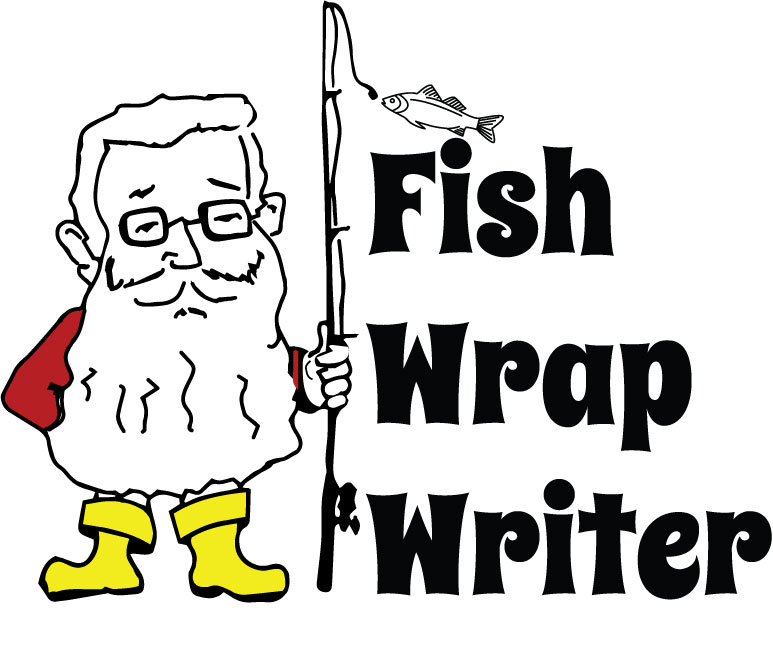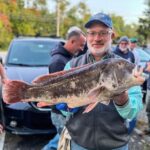Fishing, Faith and Being Muslim in a Changing World
Bear with me. This column often has abandoned traditional fishing column confines; we detailed the effects of road salt on small salamanders, covered an absolutely senseless desecration at Jounis’ Temple, introduced fishermen as young as nine, penned some tearful obituaries, lamented the closing of tackle stores and very often how man takes advantage, to the point of spoilage, of all we think somehow is rightfully ours. In fairness, this space was never intended to be a simple weekly fishing report or an uninspired rehash of other people’s emails and pictures. We wanted a netcast, if you will, to draw in and talk about the many fantastic stories characters memories and opportunities of our outdoors. Fishing requires faith in your skills, being Muslim requires faith in forgiveness and of love for others.
The parallels of faith and fishing has long puzzled me. I feel faith and presence of God when canoeing a river or casting to shadows, and that’s real for me. Regularly now, we see images of unspeakable violence committed, even justified, by skewed and incorrect interpretations of religious texts mixed with unfathomable hatred. Stocking trout in waters where native brookies live or the last days of a striper migration may pale by comparison, but they should not. For centuries, the work, lives, motivations and common sense of fishermen have inspired writers, artists, theologians and prophets. Fishing, like religion, requires great effort, perhaps some level of commitment and faith. Both may exist in a place of supreme importance for different people. To learn of any bridge between fishing and religion, I sought the counsel of Qutaiba Albluwi, Imam of the Muslim Community Center in Kingston, Rhode Island and a member of the University of Rhode Island Chaplains Association. Bear with me.
Faith Leads Anglers and Clerics
His office is in the University of Rhode Island’s Tyler Hall, which by connection, is three buildings, which made it difficult to find my way, required the assistance of four students and made me late for our meeting. Imam Albluwi used that time to pray for my safe arrival. Imams are worship leaders and scholars of the Quran, Islam’s holy text, which the angel Gabriel revealed to the Prophet Muhammad over time. Islam may not have many common denominators with fishing per se but there are more than one billion Muslims and much like fishermen, often we are painted with a broad brush.
Being Muslim is a singular devotion; there are no secondary causes because everything is a primary cause from God and all comes from Allah. From the Quran comes some basic guides for daily life: “halal” is accepted or allowed while “haram” is prohibited and those rules apply to, among other things, fish. Older intellectual interpretations instructed Muslims not to eat fish without scales. More modern scholars now define roughly anything in the sea as a fish although there are minority interpretations that to be consumed, it must have the general shape of a fish. “We have multiple interpretations of our texts”, Imam Albluwi told me, something true for many holy texts. Animals that live in both land and water, such as frogs, are haram.
Positions have evolved through the years partially because at the time of The Prophet’s life, beginning around 570, they inhabited deserts with few places to fish. Common are fishing references throughout the Holy Bible but more on a commercial scale and often used as a metaphor for deeper meanings. The Apostle Matthew wrote “Again, the kingdom of heaven is like a dragnet cast into the sea, and gathering fish of every kind”. While no reference is made to any specific fish in the Holy Bible, Jews will eat only fish with scales and fins and anthropologists believe that when Jesus divided the five loaves and two fishes, that they likely were tilapia, being native to the Middle East.
Muslims will not kill simply for sport. The Quran instructs them, “Lawful to you is the pursuit of water-game and its use for food.” [Sûrah al-Mâ’idah: 96], so if a fish or other animal is not to be consumed, it is haram. Using a worm to catch a trout for fun is normal for most but runs counter to the Quran’s teachings as it will bring harm to both bait and fish. That thinking is largely in line with practices of some sportsmen, think dry fly fishermen, but may be hard to handle for the trophy fish crowd or even those who advocate for catch and release. And maybe that’s the point: we are all unique, we benefit from different goals, pastimes and passions.
Being True, Being Muslim
A very recent anti-Muslim Facebook rant made the baseless case that Islam is out of line with American values largely due to their religious devotion yet ignored our great country’s foundation of religious tolerance. Isn’t that why we came here in the first place, back when cod were gathered by the baskets dipped from ship’s gunwales? It has become so easy to hate.
Imam Albluwi reminded me that it was Muslims who protected the ancient and holy sites, like Jounis’ temple, for thousands of years and they are not the same people who now tear them down. “It’s frustrating”, he acknowledged. He also explained that Islam is a life not just of devotion but of forgiveness and of love for others, which may not be the message we are getting from ninety-second news cycles. He told me, “God owns our lives”, something familiar for followers of other religions and that “Your traditions are our traditions. Our differences are very very minor.”
Now I know the first word revealed to The Prophet was “read”, a wonderful instruction. We read to learn, to understand, to enjoy Charley Soares’ stories, to find places that might hold fish. Often it is difficult to find fish or our way; several people had to open several doors for me to find Imam Albluwi, to begin down a long road from trout fishing to prayer five times a day. My young son and I certainly will dig spring worms to fish for trout, but that is our way. Appreciating or at minimum, accepting other people’s ways only makes us wiser.
Muslims have a sincere love for animals as they are all gifts from God, so perhaps because I am a fisherman, he told me of a verse or surah: “Fish in the bottom of the ocean pray for those who seek knowledge”.
Bear with me, I have much to learn, about man and fish.





This is very eloquent! Todd, did you write this?
thanks anne and yes, those are my words. each week i write an outdoors column for the local paper and occasionally, we leave the fine world of fishing and take on some deeper, larger ideas. this was a reach, for sure, but at the end, i learned quite a lot about our changing world. thanks for taking the time to read it. todd